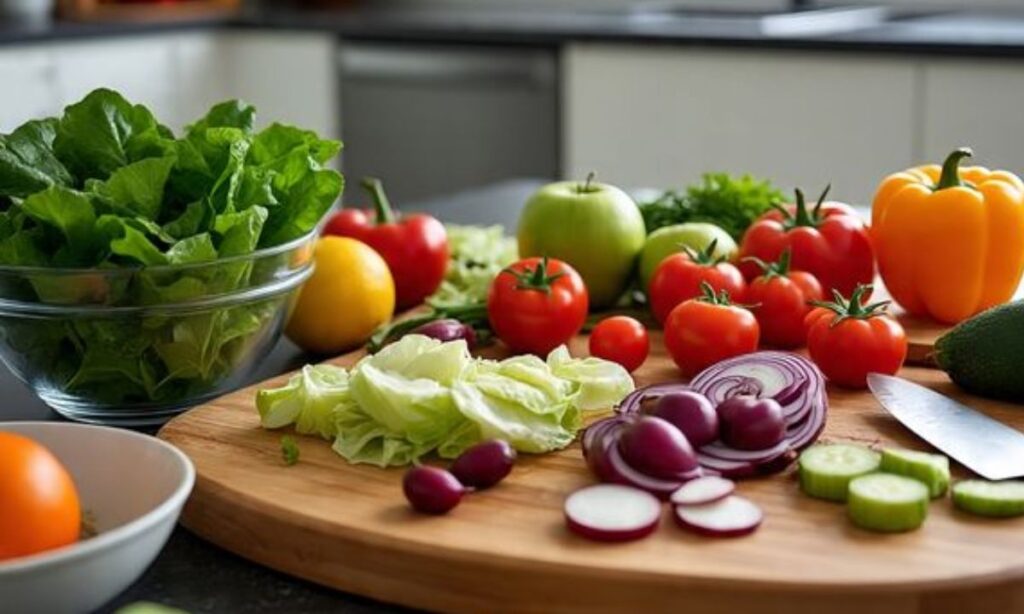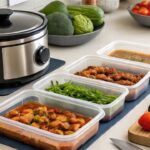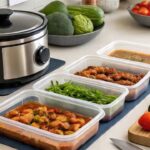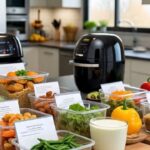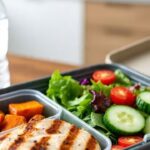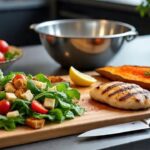Meal prepping saves time, reduces stress, and supports healthier eating habits. However, the foundation of successful meal prep lies in smart grocery shopping. By choosing the right ingredients and planning strategically, you can streamline your weekly cooking routine and cut costs without compromising on nutrition.
Why Smart Grocery Shopping Matters
- Saves Time: One well-planned trip prevents multiple store runs.
- Reduces Food Waste: Buying only what you need minimizes spoilage.
- Improves Nutrition: Having wholesome ingredients on hand supports balanced meals.
- Cuts Costs: Strategic shopping helps you take advantage of discounts and bulk pricing.
Steps to Smart Grocery Shopping
1. Plan Your Meals in Advance
Create a weekly meal plan to know exactly what ingredients you’ll need. Include breakfast, lunch, dinner, and snacks to avoid impulse purchases.
2. Make a Detailed Grocery List
Divide your shopping list by category (produce, proteins, grains, dairy, etc.). This ensures you don’t miss essential items.
3. Shop Seasonal and Local Produce
Seasonal fruits and vegetables are fresher, more affordable, and often tastier.
4. Buy in Bulk for Staples
Rice, pasta, beans, and frozen vegetables are excellent for bulk buying. They last longer and save money.
5. Use Digital Coupons and Store Apps
Check for weekly deals or discounts online before heading to the store.
6. Stick to Healthy Convenience Foods
Items like pre-chopped vegetables, canned beans, or rotisserie chicken can cut down prep time significantly.
Sample Grocery List for a Week of Easy Meal Prep
| Category | Examples | Tips |
|---|---|---|
| Proteins | Chicken breast, tofu, eggs, canned tuna | Buy extra to freeze for later use |
| Grains | Brown rice, quinoa, whole-wheat pasta | Opt for bulk or family packs |
| Vegetables | Spinach, broccoli, bell peppers, carrots | Choose pre-cut if time is tight |
| Fruits | Apples, berries, bananas, oranges | Pick seasonal for better prices |
| Healthy Fats | Olive oil, avocados, nuts | Store nuts in airtight containers |
| Snacks | Greek yogurt, hummus, whole-grain crackers | Buy multi-packs to save money |
Smart Shopping Tips
- Shop the Perimeter: Fresh produce, dairy, and proteins are typically on the outer aisles.
- Avoid Shopping When Hungry: This helps reduce impulse buys.
- Check Unit Prices: Compare per-ounce or per-gram prices for real savings.
- Bring Reusable Bags: Not only eco-friendly but also sturdy for heavy items.
Meal Prep Ideas Using Smart Grocery Shopping
- Batch Cook Proteins: Cook chicken breasts or tofu in bulk to use in salads, wraps, and rice bowls.
- Pre-Chop Vegetables: Store in airtight containers for quick stir-fries or sides.
- Mix & Match Ingredients: Use the same base items (like quinoa or brown rice) with different toppings for variety.
- Freeze Extra Portions: Soups, stews, and casseroles freeze well and can be reheated later.
Table: Weekly Meal Prep Example
| Meal | Prep Strategy |
|---|---|
| Breakfast | Overnight oats with berries and nuts |
| Lunch | Grilled chicken with quinoa and steamed broccoli |
| Dinner | Stir-fried tofu with mixed veggies and brown rice |
| Snacks | Greek yogurt, hummus with carrot sticks, fresh fruit |
Frequently Asked Questions (FAQs)
1. How do I create a grocery list for meal prep?
Start with your weekly meal plan, write down ingredients by category, and check your pantry for what you already have.
2. How can I save money while grocery shopping for meal prep?
Shop seasonal produce, buy pantry staples in bulk, and use store discounts or coupons.
3. How long can prepped meals stay fresh?
Most cooked meals last 3–4 days in the refrigerator. For longer storage, freeze meals in portioned containers.
4. What are the best staple items for meal prepping beginners?
Rice, pasta, canned beans, frozen vegetables, eggs, chicken, and healthy oils are excellent staples.
5. Should I buy fresh or frozen vegetables?
Both work well. Frozen vegetables are convenient, last longer, and retain nutrients.
Key Takeaways
- Plan First, Shop Second: A plan reduces stress and saves money.
- Think Versatility: Choose ingredients that can be used in multiple recipes.
- Invest in Storage: Airtight containers and freezer bags keep prepped food fresh.
- Stay Consistent: Regular smart shopping builds a smooth meal prep routine.
